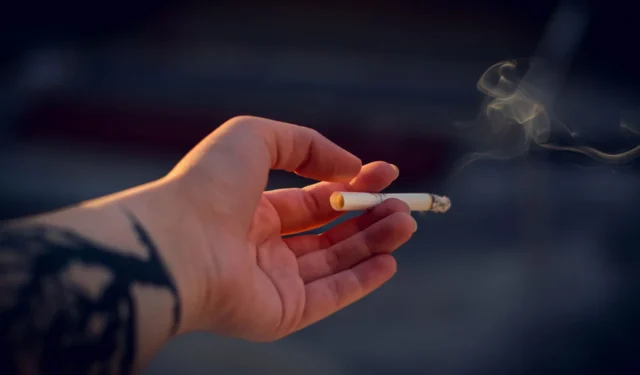
It is well recognized that smoking and tobacco usage hurt the body and raise the risk of heart disease, stroke, and lung cancer. The harm that smoking and tobacco usage can bring to one’s oral health, however, is not widely known.
In this article, we examine the numerous oral health hazards connected to smoking and other tobacco use.
Negative consequences of tobacco use and smoking on oral health

Here are a few:
Mouth cancer risk is rising
Oral cancer is significantly increased by tobacco usage. Oral cancer is more likely to occur in smokers than in individuals who don’t use tobacco products, whether they smoke cigarettes, cigars, or pipes. Oral cancer risk is also increased by smokeless tobacco products like chewing tobacco or snuff.
The lips, tongue, cheeks, floor, roof, and throat are all susceptible to oral cancer. Mouth sores, white or red patches in the mouth, and trouble swallowing are all symptoms. Oral cancer can be fatal if it is not detected early.
Gum illness
Gum disease can result from gum damage caused by smoking and other tobacco usage. An infection of the gum-supporting tissues is known as gum disease. Gum disease is characterized by red, puffy, or bleeding gums as well as foul breath and tooth loss.
In addition to decreasing blood flow to the gums, smoking and tobacco usage can also make it more difficult for the body to fight against diseases. This may result in gum disease cases that are more severe and make treatment more difficult.
Dental caries
The risk of dental decay can increase with tobacco usage and smoking. Saliva is necessary for neutralizing oral acids and preventing tooth decay, however smoking can reduce saliva production.
Smoking and tobacco usage can also discolor teeth, increasing their susceptibility to decay. Moreover, smoking can contribute to foul breath, which can lead to tooth decay.
A longer recovery period
The healing process for oral wounds might be slowed down by smoking and tobacco use. This covers recovering from dental extractions, oral surgery, and other oral operations.
The blood vessel constriction caused by nicotine in tobacco products reduces blood flow to the mouth and slows the healing process. It may result in issues and a prolonged recovery period following oral surgery.
Halitosis
Smoking and other tobacco usage can result in halitosis, or bad breath. The chemicals in tobacco products can cause bad breath and make it more difficult to get rid of it.
Smoking can also promote a dry mouth, which can contribute to bad breath. When the mouth does not produce enough saliva to keep it wet, it becomes dry.
Use of tobacco products, including smoking, can have negative effects on dental health.
There are services available to assist you stop using tobacco products or smoking, such as support groups, medication, and nicotine replacement therapy. For more information about stopping smoking to protect your dental health, go to your doctor or dentist.




Leave a Reply